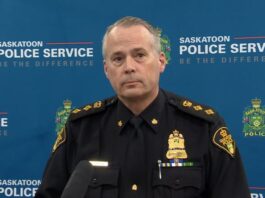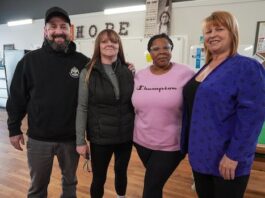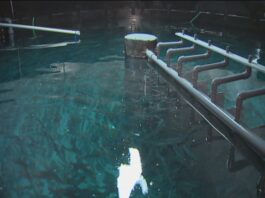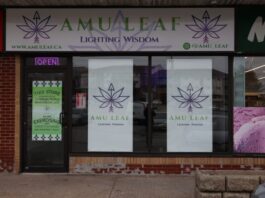
This First Person column is written by Lindsay Bond, a nurse who lives in Halifax. For more information about CBC’s First Person stories, please see the FAQ.
I was 23 years old when I had my stroke.
It still seems silly saying it. I was young and healthy and had just started my nursing career — which is why it was such a shock when I had the stroke. Turns out, it was caused by a patent foramen ovale (PFO), which is a hole in the heart that typically closes as a baby.
It is nearly a year after my stroke and I feel like I have not processed it fully. I often have to convince myself that it did in fact happen. But it did, and now it’s shifted my perspective on my nursing career and family.
While I was applying to universities in high school, being far away from my family wasn’t really something I thought too much about. Of course, there were times when I missed my family, but I spent many reading weeks, weekends and summers at home. I had no idea how much I relied on my family and friends for emotional support or how homesick I would get.
That feeling intensified when I had my stroke just as the third wave of COVID-19 was peaking in Canada. The hospital I was at had closed its doors to all visitors, and the province had shut down its borders. Everything had to be done virtually, which proved to be quite exhausting while I had terrible double vision and mostly relied on my ears. I felt trapped in the hospital. My parents were unable to travel to Nova Scotia from Ontario, and even if they could, they wouldn’t be allowed in the hospital to see me.

My mother had stage 4 esophageal cancer, and it felt like the time I had left with her was stolen because I was stuck in the hospital for six weeks and separated by thousands of kilometres. While I was hospitalized, going home to my family felt like my only motivation to get better. After going through this pandemic and feeling so lonely in the hospital, I’m never taking for granted the time I spent with my family and loved ones.
As a nurse, I have seen the devastation that strokes have on people and their families. Typically, these patients were older and usually had comorbidities, the medical term for having additional conditions. It was scary to think about how these patients would go on after leaving the recovery room or what the lasting impacts might be.
After my stroke, suddenly the tables turned and I went from being the nurse to being the patient. I never once thought to myself that I could be the one in the hospital stretcher — uncertain if I could walk again or swallow solid food again or be a nurse again. I had to remind myself constantly that I wasn’t the only one going through this. Strokes happen to people every day. After being the one in the bed with nurses taking care of me, I feel like I have a better grasp on the hundreds of emotions that many patients feel while they are in the hospital.
I’m not saying any nurse intends to ignore the emotions and fears of having a stroke. But we’re so busy and focused on the medical treatments of multiple patients, that it is easy to forget to pay attention to these things in such a fast-paced environment. When I return to work, I don’t want to forget how alone I felt lying on that hospital bed. Hopefully, it will make me slow down and pay attention to the non-physical needs of my future patients.

This past year has been one of the most difficult of my life, and that isn’t even really taking into account the pandemic. After enduring many adversities with health and family, I remember the things that I am grateful for. I think about the silver linings of every situation instead of asking the “what ifs.”
I’ll remember that I was not the only patient in the hospital during the visitor restrictions. I’ll remember to be present in the moment when I am with my family and loved ones because at any moment they could be taken away. When I go back to work as a nurse, I’ll remember how it felt to be on the other side of things. How it felt to be lying in the stretcher and feeling scared, relying on someone else for things that normally I could have done myself. When I think about all I have learned from this experience, having a stroke at 23 doesn’t seem so bad anymore.
I would like to say that now I spend more time with my family, but with everyone’s busy lives and the continued pandemic, it is hard to make the time. Instead, I try to be more present in the moment, grateful that I have loving and supportive people around me, cheering me on in my stroke recovery.
Do you have a compelling personal story that can bring understanding or help others? We want to hear from you. Here’s more info on how to pitch to us.












